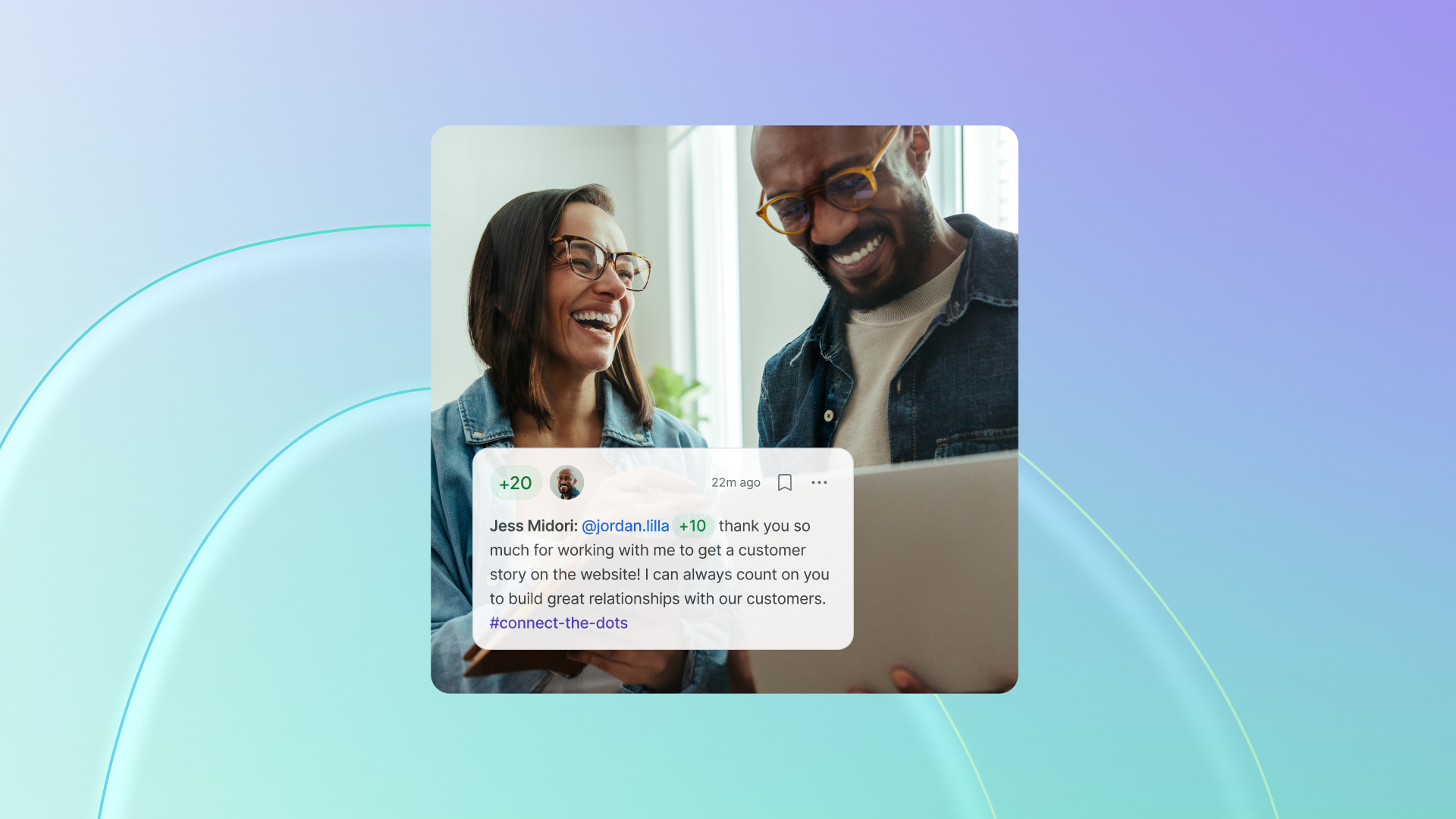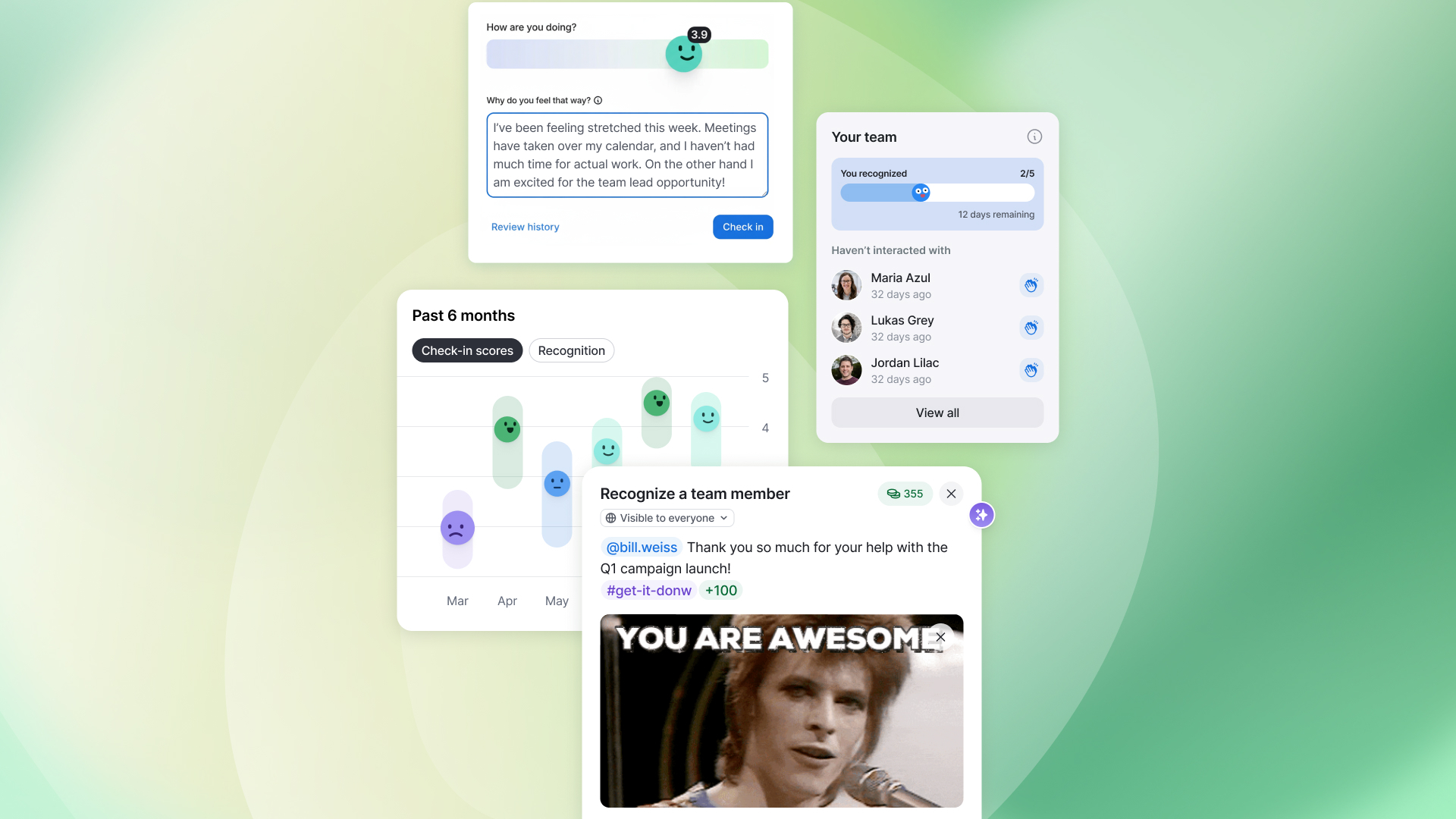Why Recognition Is the Secret to Amazing Employee Advocacy

Your employees are influential on social media and in their networks and they have the potential to generate significant exposure for your company—for better or for worse.
In short, work is a major part of peoples' lives, and they will talk about it.
Though you may be tempted to create a detailed top-down social media policy, stringently enforcing brand guidelines, you'll soon realize that you can't micromanage your employees' personal activity online or in networking scenarios.
Ben Donkor put it extraordinarily well in his Link Humans article, "A Kickstart Guide to Employee Advocacy on Social Media":
Trust motivates shares, it encourages genuine conversations, and it builds the confidence in your employees that you trust their judgment.
-Ben Donkor
The key—nay, the secret—to organic and natural employee advocacy is building a culture employees are excited to talk about, and trusting them to talk about it responsibly.
The most credible voices of your company
Did you know that employees are considered the "most credible voices" of a company?
While your latest ad campaign may highlight the virtues of your brand, if your employees are constantly grumbling about how poorly they are treated, their comments will carry more weight with the general public than any public relations message. Likewise, if your employees are enthusiastic about the company, workplace, and products, their views will influence others positively.
According to the 2014 Edelman Trust Barometer Annual Global Survey, the credibility of regular employees has increased dramatically over the past five years—surpassing that of even the CEO.
Think about this for a moment:
What a flight attendant working for Virgin America says about the company could be considered more credible in the eyes of the public than those of owner Sir Richard Branson. What an employee says about their employer shouldn't be ignored.
Not only that, employees have tremendous reach and influence. They're already on Facebook, Twitter, LinkedIn, Tumblr, probably even some social networks you've never even heard of—and they're talking and sharing content.
The importance of employee advocacy
Credibility and reach combine to make employee advocacy a compelling proposition both in terms of consumer outreach and in talent acquisition.
Let's go back to that flight attendant:
If his friends and neighbors know that he loves his job, is valued by management, and highly engaged in ensuring the best passenger experience possible, which airline do you think they'll consider for their next flight? In contrast, what if he says he hates his job, is treated poorly, and that no one cares about the customer experience?
He probably has some former coworkers and classmates in his social network, too.
If he shares positive experiences and talks about how amazing his job is, his advocacy could attract other talented, highly-qualified candidates to the company. However, if he says he's underpaid, under appreciated, and under-trained, they'll look elsewhere for their next jobs.
In an article for the Harvard Business Review, "CEOs Need to Pay Attention to Employer Branding," Richard Mosley noted that employer branding has been largely the domain of human resources and recruiters since it emerged in the mid-1990s. However, social media and the need for increased transparency have shifted employer branding to the CEO and marketing—with an emphasis on employee engagement and advocacy.
Want our newest blog posts straight in your inbox? Sign up for our bi-weekly newsletter!
Using recognition to inspire employee advocacy
Many of the employee engagement initiatives you already have in place to help your employees feel good about where they work could provide fodder for employee advocacy:
Meaning and purpose
When work is meaningful and personally rewarding, employees are likely to share stories that reflect this.
Volunteer opportunities
If your organization encourages employees to take a full day off from work each month for volunteer work, and your employees share photos of their volunteer projects on Instagram or post an update about how grateful they are for the opportunity to help others, they are acting as employee advocates.
Autonomy
Your employees love being able to manage their own work and may share their positive experiences on social media. For instance, an employee might share a photo of a beautiful walking path on your campus along with a status update such as, "Yes, I really am working. Taking a short breather and feeling inspired." Who wouldn't want to work for your company after seeing that?
Culture is paramount in building an effective employee advocacy program. Hootsuite's 6-Step Guide to Employee Advocacy lists "prioritizing culture" as step one.
So, where does recognition fit into the employee advocacy equation?
Good staff recognition programs foster employee engagement by showing employees how much you, their colleagues, and customers appreciate their contributions. Peer recognition expands on this concept, and helps to build important work relationships. Feeling appreciated and having friends at work are extremely important to employees, affecting their happiness significantly.
A culture of appreciation and recognition can inspire employee advocacy organically.
As you know, you can't force employees to say nice things about your company. However, you can create an engaging environment where they feel valued, have a sense of purpose, are empowered to manage their work their way, and have opportunities to be rewarded and reward others.
With a great employee recognition program, your employees might use social media to:
- Thank the company or a peer for a reward
- Express feelings of appreciation after being recognized for a contribution
- Recognize a peer for his or her help on a project, creative idea, or unique solution to a problem
- Talk about the recognition program itself
If you're having a hard time believing that this really happens, take a moment to look at this feed of tweets we've curated.
As employees become accustomed to rewarding others, the workplace culture becomes all the more positive—an environment where signs of appreciation are freely shared. It becomes second nature to give shoutouts to those who deserve them, and this often carries over to social media.
You can't force or buy employee advocacy, but you can provide a culture and an environment to inspire it.







